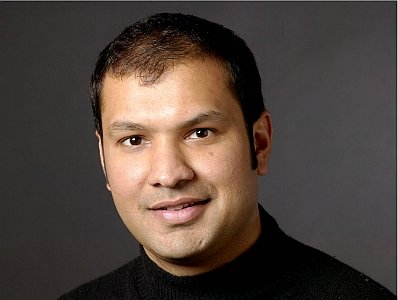
Mr Nishith Chasmawala, co-founder, Consure Medical
Fecal incontinence (FI) or commonly referred to as bowel control problem, is a condition in which there is a loss of regular control of the bowels. Involuntary excretion and leaking are common occurrences in the affected individuals. The condition is prevalent in 18-33 percent patients in acute or critical care settings, 46 percent patients in long-term care at hospital, and three percent along elderly patients in residential and nursing homes. Consure Medical, a New Delhi-based start-up which started operations in 2011, has developed a novel, disruptive solution to address this unmet clinical need which is assumed to benefit more than 16 million patients in India and over 100 million worldwide.
Mr Nishith Chasmawala, co-founder, Consure Medical mentions "FI is un-glamorous. Nobody talks about the problem. It is psychologically stressful to the patient and a major source of embarrassment to the family. We have developed a novel solution that will enable a family member to care for their loved ones in a dignified and hygienic manner. Our device is odorproof, leakproof and works across multiple clinical settings. We have replaced yuckiness with compassion and dignity."
The solution for FI was developed by three fellows at Stanford-India Biodesign: Dr Sandeep Singh (faculty at AIIMS), Amit Sharma and Nishith. During their fellowship, the team identified over 300 unmet clinical needs of India that needed attention. Through a comprehensive filtering process, the team decided to work on the FI problem. Mr Nishith recalls, "we did not set out to address a $7 billion reverse innovation challenge. Once the problem was identified and well defined, we set out to adress this latent need. Medical device product development and commercialization comes naturally to us. We spent a lot of time doing clinical validation, market segmentation, IP landscape and last but not the least - how to develop a product in India where the medical device ecosystem is very nascent and severely fragmented."
After the idea and concept generation, the team built over 100 prototypes of the device to evaluate different concepts and gather preliminary subjective evidence. Mr Nishith highlights "we were lucky to be based out of AIIMS during this phase of development. Medical device development is an iterative process and getting real time feedback from some of the brightest clinical minds of idea was extremely vital."
Talking about the formation of Consure Medical, Mr Nishith says, "after almost 15 months of iterative development and bootstrapping, we felt we had reached the escape velocity to go to the market and raise funds. Amit Sharma and I co-founded the company in 2011. Dr Sandeep Singh continues to practice cardiology at AIIMS and finds time to help us out with clinical trials and other stuff."
Current practices to treat FI is through absorbent pads in the form of diapers, which is the most widely used solution to manage FI. This however leads to dermatitis and denudation (skin breakdown) of the perianal skin. The latest solution which is indwelling catheters causes anal sphincter complications and are indicated for liquid stool only. Both of these available solutions are ineffective leading to increased nursing time, length of stay, chances of bedsores and pressure ulcers. Consure's device addresses these problems in a cost-effective manner. This solution can be used by untrained peronnel and is comparable to the cost of adult diapers. The devise has a slick insertion mechanism, that allows care providers to deploy the device on patients in a hygienic manner.
Mr Nishith further elaborates the benefits by saying "our product was developed keeping in mind the resource constraints of India. We forced ourselves to think of creative solutions that do not require a doctor, nurse or any imaging or examination. It turned out that our simple product designed for a resource constraint environment has a huge potential to alleviate healthcare costs in developed markets."
In August 2012, Consure Medical managed to secure series A funding from Indian Angel Network and India Innovation Fund which they plan to utilize for product development and to execute clinical and regulatory strategy. Prior to this Series A finance, the company developed the product using grants from Stanford-India Biodesign program, Department of Biotechnology and a corporate division of Johnson and Johnson. "Their contribution and foresight enabled us reach the escape velocity and raise Series A finding. Besides equity finance, we have also won some prestigious grants that will help us achieve a higher milestone.
Talking about the drawbacks that the company has suffered till now, Mr Nishith says, "Medical device development involves significant clinical, regulatory and business risk. Device companies also require a long gestation period. Fortunately we have investors, board members and advisors that are actively involved with the company. There are no major obstacles faced yet. We are executing and growing at a break neck speed, while fully realizing that odds of success are stacked against us." The company is also on the lookout for talented professionals to join their "exciting start-up"
Mr Nishith believes that his product is a classic example of what Jeff Immelt calls "reverse innovation or trickle up innovation". He concludes, we are building a new standard of care for the management of fecal incontinence. If we are successful a lot of patients and family members will directly benefit from our solution. That will be worth all the struggles. Hopefully we will live another day to tackle the other 299 unmet clinical needs that need to addressed for the citizens of India."




